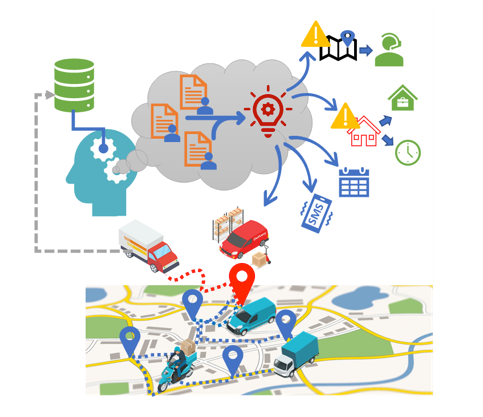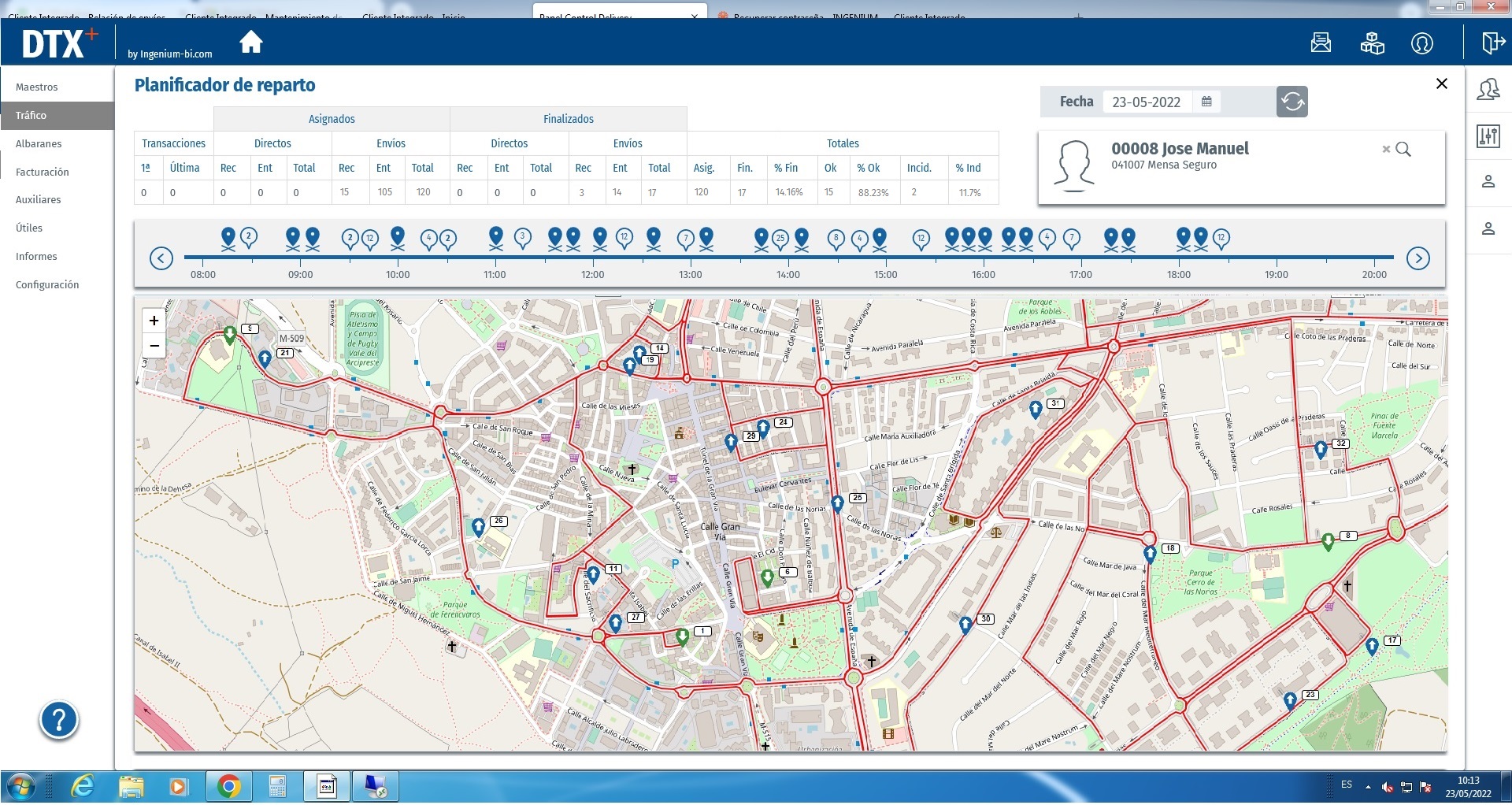Optimizing last-mile delivery logistics with Artificial Intelligence
Date
Brief overview
The last-mile delivery and collection services sector is experiencing sustained double-digit growth driven by the expansion of e-commerce, which is placing enormous pressure on logistics companies. Furthermore, customers have increasingly higher expectations for the speed and convenience of deliveries, and are less tolerant of delays and order errors.
The overall objective of the project is to develop a system for predicting incidents, analyzing them, and implementing proactive automated actions using machine learning techniques to reduce failed deliveries. This will directly result in fewer kilometers traveled by carriers and, consequently, lower CO2 emissions, reduced urban congestion, and improved customer service, thus contributing to a more competitive and sustainable business model.
The project involves designing and developing an incident prediction tool using machine learning techniques, implementing an automated system to minimize last-mile delivery issues. Finally, it is validated through pilot testing of the new system in courier environments.
One of the key aspects of the last-mile delivery and collection business is delivery failures. Currently, a significant number of incidents occur, resulting in a major impact on service quality and the profitability of specialized logistics companies operating on tight margins. These incidents include services not delivered on the agreed date, rejected due to non-compliance with service conditions, or anomalies prior to order distribution. Depending on various factors and service types, the percentage of incidents in the sector can average between 10% and 20% of total services, according to different studies.
Transport agencies can take certain measures to try to reduce these failures by identifying patterns in service behavior. Using artificial intelligence techniques, they can pinpoint deliveries where problems are likely to occur. Early detection of potential issues will allow last-mile delivery agencies to take proactive measures, resulting in improved customer reputation, reduced costs, and increased sustainability of urban transport.


